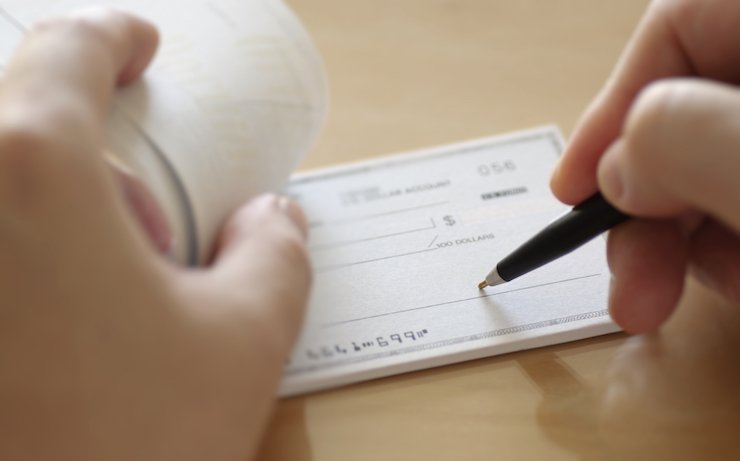
Stopping Payment on a Check
You may want to think twice before stopping payment on a check. Under Florida law, check fraud is a criminal offense. It may involve the check or draft issuer stopping payment on a check or the check being issued and stopped with the intent to defraud the recipient. Additionally, lack of funds, credit, or an account, all causing the check to “bounce,” can also be considered check fraud.
If you are caught up in a scenario like this, Florida law can require the check issuer to pay triple damages, bank and attorney fees, and court costs.
What Is Stopping Payment on a Check?
A stop payment is a formal request to a financial institution to cancel a check that has yet to be processed. A stop payment order can only be issued if the recipient has not processed it. Banks typically charge a fee to stop payment on a check once somebody authorized it.
Elements of Check Fraud
To commit check fraud, an individual must first deliver, give, or draw any check, draft, or written order in person to receive goods or services. Once the goods or services are received, the individual stops payment on the check.
What the Prosecution Needs to Prove in Check Fraud Cases
In Florida, the prosecutor must prove five things occurred beyond a reasonable doubt to convict someone of check fraud, as follows:
- The defendant issued, made, drew, delivered, or gave a check or other written payment to a bank, corporation, or another person;
- The defendant gave a check with the intent to defraud;
- The defendant obtained the goods or services from the check;
- Once the defendant received the goods, they stopped payment on the check; and
- The defendant stopped payment with the intent to defraud.
Under Florida Statute 832.041, committing check fraud can be charged as a criminal offense depending on the check’s amount.
Penalties for Stopping Payment
The punishment for committing check fraud depends on the value of the goods and services received. Depending on the severity, check fraud can be a felony or a misdemeanor.
If the amount of goods and services is $150 or more, the offense can be a third-degree felony. A court can sentence the individual to serve up to five years in prison, five years on probation, or pay a fine of up to $5,000. However, a judge may sentence the individual to a combination of any penalty.
A court could classify the offense as a second-degree misdemeanor if the amount of goods and services is less than $150. Punishment for this offense is less severe. A judge can sentence the individual to serve up to 60 days in jail or pay a fine of up to $500.
However, the party seeking to collect payment may be awarded both the amount owed and damages triple the amount owed. To avoid paying triple the amount owed, the check issuer may have the option to pay the original amount owed and any bank or service fees the check recipient accrued.
Defenses for Check Fraud
There are many defenses available an attorney can use when defending an individual charged with stopping payment on a check.
The primary defense concerns whether the prosecutor can prove the element of fraud. The intent to commit fraud is a required element to charge an individual, and it must be present when the check is issued and when the issuer stops payment on the check. If there is lacking evidence, a conviction for check fraud cannot occur.
Another defense an attorney may use is that the individual stopped check payment because of a dispute with the seller or service provider. An attorney could also claim the defendant is dissatisfied with the quality of the good or service.
A post-dated check may also act as a defense. Postdating a check offers a credit extension for the individual and converts the case to a bad debt situation. Additionally, the person who gave the check may have made a verbal statement to the recipient that they had insufficient funds in the account to cover the check at the time. If the recipient still takes the check, they agree to extend your credit.
The court or a jury may waive or reduce criminal charges if they determine the defendant canceled the check due to the check issuer dealing with severe economic hardship.
What If Someone Stopped Payment on a Check Issued to Me?
You might be able to sue for damages if a check issued to you gets canceled. To do this, you will need to file with the court and provide evidence regarding the check and your losses. If you stop payment on a check that you issued, these types of legal penalties may apply to you as well.
Contact an Experienced Criminal Defense Attorney in Florida
If you’re accused of stopping payment on a check, your personal, professional, and financial future may be at stake. An attorney is crucial to protecting your rights. The Umansky Law Firm is a trusted source of legal representation in Central Florida. With more than 100 years of combined experience, our expert attorneys will evaluate your case and assist you every step of the way.
Call us or complete our online contact form to schedule your free consultation. Our team of former Florida prosecutors will fight for you.


